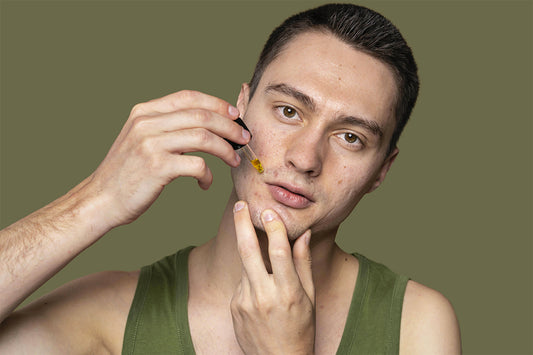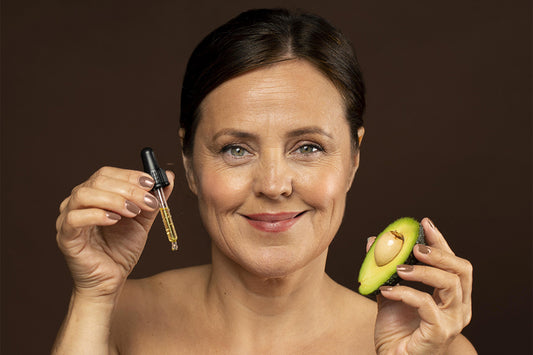Dry Skin: Causes, Symptoms and Effective Remedies for Healthy Skin

Dry skin is a common problem that can cause discomfort and aesthetic problems. Characterized by dehydration, flaking, and fragility , this condition requires special attention and targeted treatment to restore hydration and skin comfort . In this article, we'll explore the underlying causes of dry skin, its associated symptoms, and the best remedies available to combat it.
Causes of dry skin: why does it happen?
Dry skin can result from a number of factors, including:
- Poor intake of essential nutrients : A diet deficient in saturated fatty acids, proteins, and amino acids can negatively affect the health of the skin, compromising its ability to retain moisture.
- Lack of hydration : Poor fluid intake can contribute to dehydration of the skin, making it dry and disconnected.
- Vitamin deficiencies : Vitamin A deficiency in particular can affect skin health, compromising its ability to maintain proper hydration and elasticity.
- Using aggressive cosmetic products : Cosmetic products containing aggressive ingredients or alcohol can strip the skin of its natural moisture and compromise the protective barrier.
- Dermatological and metabolic conditions : Conditions such as dermatitis, eczema, or metabolic problems can contribute to the appearance of dry skin, requiring specific and targeted treatment.
Symptoms of dry skin: how to recognize it?
Dry skin manifests itself with a series of characteristic symptoms, including:
- Dehydrated and flaky appearance : the skin appears dry, cracked and inelastic, with a thin and fragile appearance
- Roughness and irregular texture : The leather may feel rough to the touch and have an irregular surface.
- Presence of blackheads : Sometimes, blackheads, also known as "blackheads," may appear due to blockage of the pores.
- Dull and lifeless complexion : the skin takes on a dull and pale complexion, giving an unhealthy and lifeless appearance.
How to Treat Dry Skin: Effective Remedies and Helpful Tips
To combat dry skin and restore its hydration and vitality, it is important to adopt a series of preventative measures and curative treatments.
Here are some helpful tips:
- Consistent hydration : Hydration is essential for keeping skin hydrated and healthy. Make sure you drink adequate fluids throughout the day and use moisturizers rich in humectants like hyaluronic acid and glycerin.
- Balanced diet : A balanced, nutrient-rich diet is essential for healthy skin. Make sure to consume a variety of foods rich in vitamins, minerals, and antioxidants to support the skin's barrier function and promote hydration.
- Gentle and nourishing cosmetics : choose gentle and nourishing cosmetics, free from harsh or irritating ingredients, to cleanse and hydrate the skin without compromising its natural protective barrier.
- Sunscreen : Protecting your skin from UV damage is essential to prevent dehydration and premature aging. Use broad-spectrum sunscreen with a high sun protection factor (SPF) and wear protective clothing when exposed to the sun.
- Specific treatments : If you have dermatological or metabolic conditions associated with dry skin, consult a dermatologist to evaluate specific and targeted treatment options.
In conclusion, dry skin can be a bothersome problem, but it can be managed with the right treatment and prevention approaches. With a combination of regular hydration , a balanced diet , and the use of appropriate cosmetic products , you can restore your skin's health and vitality, ensuring a long-lasting, radiant appearance.



